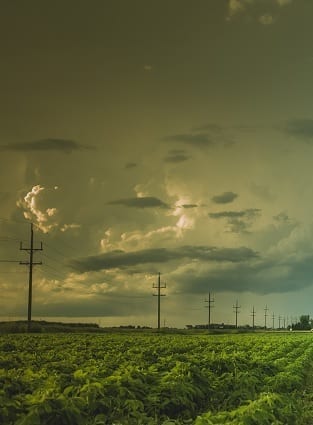Monsanto Herbicide Still Banned in Arkansas
A legislative subcommittee supported Arkansas lawmakers who recommended regulators move forward with efforts to ban a weed killer that farmers in several states have accused of causing damage to their crops. The prohibition is moving forward despite lawsuit efforts by the manufacturer of the product, Monsanto. The Plant Board’s proposal to ban the use of dicamba from April 16 through Oct. 31 was approved by the subcommittee, and Arkansas state lawmakers upheld the proposal this past Friday.
This is the strictest state limitation imposed on the product after it was linked to millions of acres of crop damage in 2017. The ban makes it much less enticing for farmers to buy soybean and cotton seeds genetically engineered by Monsanto to resist dicamba because these are designed to be sprayed with the chemical during the growing season. Monsanto was hoping its herbicide and the seeds engineered to resist it, called Xtend, would dominate soybean production this year.

Dicamba has been around many years, but problems arose recently as farmers began to use it to kill invasive weeds in their fields filled with the seeds engineered to resist the herbicide. The chemical strayed and settled on neighboring fields planted with seeds that are not resistant to dicamba, killing the crops.
The Plant Board last year approved a temporary ban on the herbicide’s use after receiving nearly 1,000 complaints about it. Farmers have also complained about dicamba causing damage to their crops in other states, including Missouri, North Dakota, Mississippi, and Tennessee. “We are only asking for a pause in this until we get our hands around this and figure out what we can do,” David Wildy, an Arkansas farmer said. “We can’t allow this to happen again.”
There are many farmers who disapprove of the ban, however. They feel would put the state at a disadvantage to others who haven’t gone as far in restricting the weed killer. “Give the farmers in this state an opportunity to compete with the rest of the U.S.,” Joe Mencer, an Arkansas soybean farmer, pleaded.
Monsanto filed a lawsuit in Pulaski County Circuit Court challenging the decision and claiming the Plant Board exceeded its authority in fighting against the herbicide. “This vote would put Arkansas farmers at a serious disadvantage and we ask the executive committee to set this right for growers. We will continue to pursue our legal challenge. We will continue to stand with Arkansas growers who need new tools for weed control,” Scott Partridge, Monsanto’s vice president of global strategy, stated.
Just last month, the federal Environmental Protection Agency released a statement saying glyphosate, the primary ingredient in Monsanto’s controversial weed killer, Roundup, likely does not cause cancer as initially believed These findings contradict the widely published conclusion of a European scientific panel as well as California regulators who placed glyphosate on the Proposition 65 list of probable carcinogens. The controversy is linked to opposition to genetically modified crops, in general. Much like the seeds designed to resist dicamba, Monsanto has patented many versions of commodity crops altered to resist Roundup.
Sources:
Arkansas Legislative Panel Backs Proposal to Ban Herbicide
Arkansas restricts controversial Monsanto, BASF farm chemical


Join the conversation!